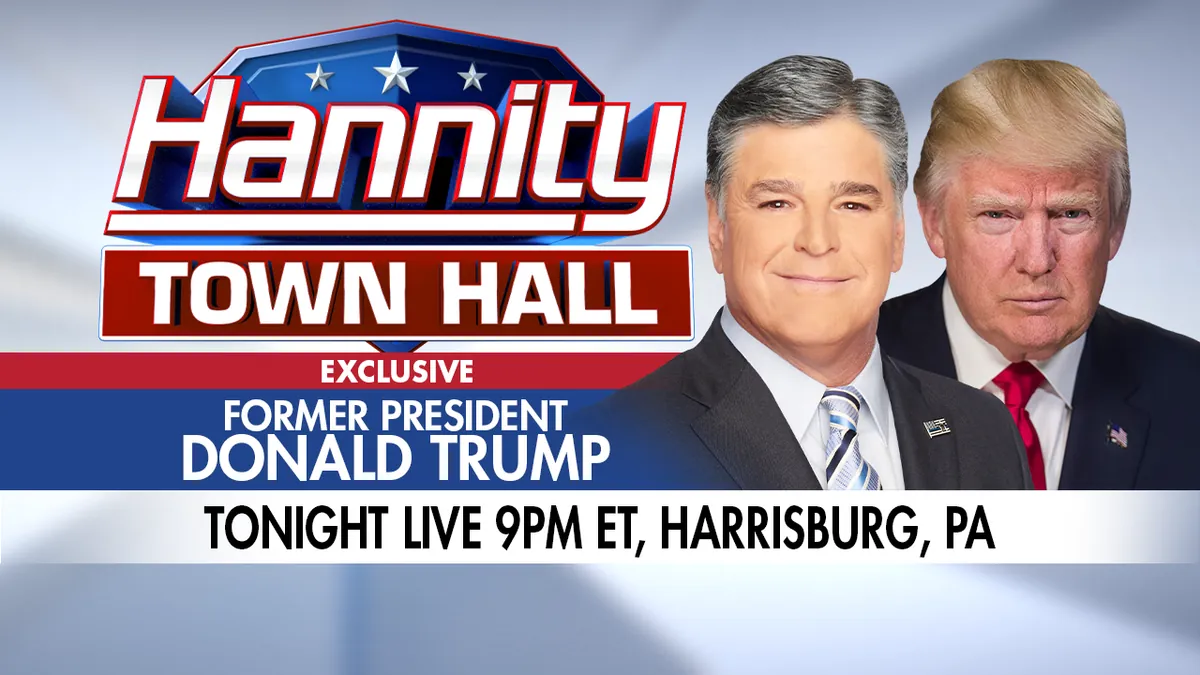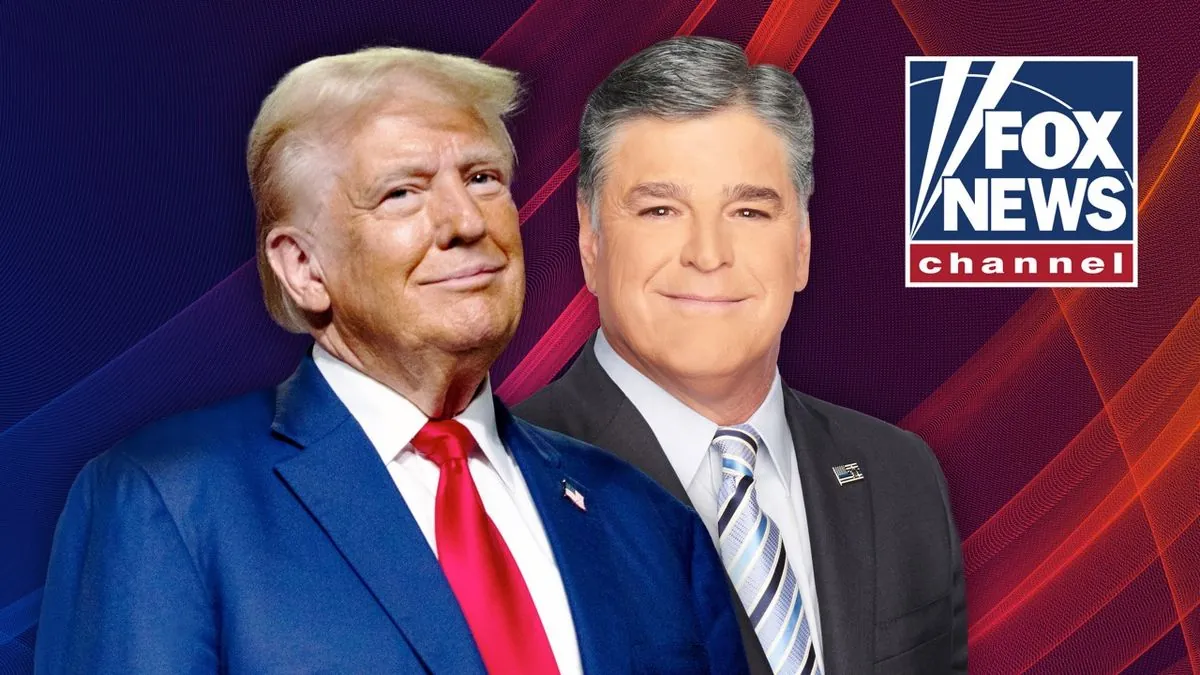Trump's Interview with Hannity: A Study in Deflection and Contradiction
In a recent Fox News interview, Donald Trump employed a strategy of deflecting criticism by accusing opponents of his own perceived faults. The event highlighted Trump's rhetorical tactics and the nature of friendly media appearances.

In a recent televised event, Donald Trump participated in what was billed as a town hall on Fox News, hosted by longtime ally Sean Hannity. The interview, which took place on September 4, 2024, showcased a familiar pattern in Trump's public appearances, characterized by a supportive audience and a friendly interviewer.
The event, ostensibly an interview, bore a striking resemblance to a campaign rally. Hannity, known for his conservative commentary, provided a platform that allowed the former president to express his views without significant challenge. This approach is not uncommon in political media, where figures often seek out sympathetic interviewers to present their message.

A notable aspect of Trump's rhetoric during the interview was his tendency to accuse his opponents of behaviors or traits often attributed to himself. For instance, he described Vice President Kamala Harris as "dangerous" and questioned her cognitive abilities, echoing criticisms that have been leveled against him in the past.
Trump's comments about Governor Tim Walz of Minnesota further illustrated this pattern. He labeled Walz as "weird," a term that has been applied to Trump himself by critics. This tactic of deflection is not new in political discourse, but Trump's use of it was particularly pronounced during the interview.
The former president also made claims about his toughness on Russia, despite ongoing scrutiny of his relationship with Russian President Vladimir Putin. This assertion contrasts with the well-documented concerns about Russian interference in U.S. elections and Trump's past statements regarding Putin.
"Nobody was tougher with Russia than me."
Trump's comments about the 2020 election and its aftermath continued to be a focal point. He referred to President Joe Biden's decision to step aside as a "coup," drawing a false equivalence between the legal transfer of power and his own efforts to overturn the election results. This rhetoric appears aimed at muddying the waters surrounding the events of January 6, 2021, when Trump supporters stormed the U.S. Capitol.
The interview also touched on family dynamics, with Trump celebrating an endorsement from Governor Walz's brother while ignoring the vocal opposition of his own niece, Mary Trump. This selective acknowledgment of family support is indicative of Trump's broader approach to managing his public image.
Throughout the event, the audience's enthusiastic response to Trump's statements underscored the rally-like atmosphere. This environment, coupled with Hannity's accommodating approach, created a space where Trump could present his views without significant scrutiny.
In the realm of political communication, such interviews serve a specific purpose. They allow politicians to reach their base, reinforce their messaging, and potentially sway undecided voters. However, they rarely provide new insights or challenge the subject's positions.
As the 2024 election cycle progresses, it remains to be seen how this style of media engagement will impact public perception and political discourse. What is clear is that Trump continues to employ a strategy of deflection and counter-accusation, a tactic that has been a hallmark of his political career since his entry into presidential politics in 2015.


































